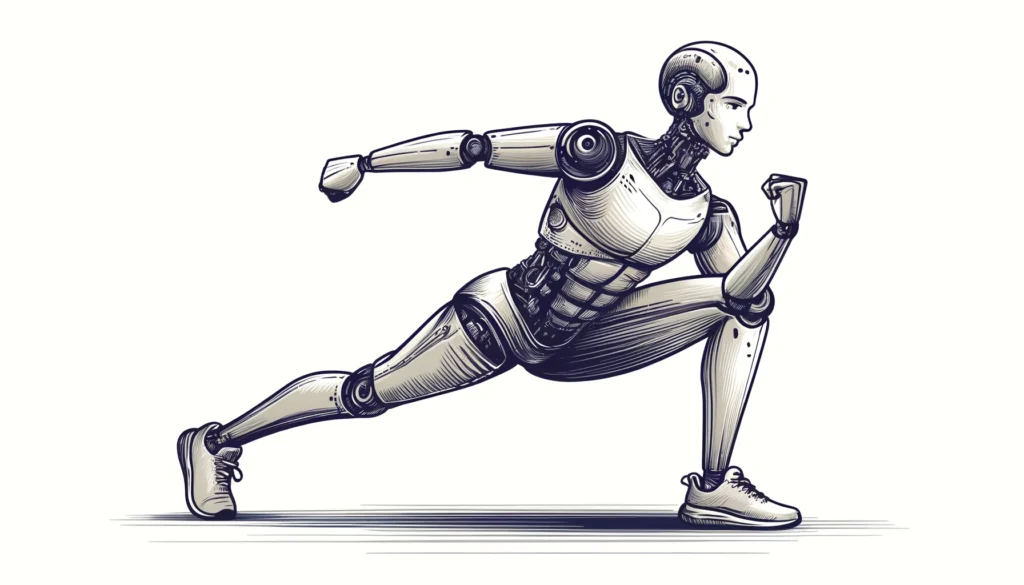Understanding AI Music
AI-generated music is the thrilling blend of technology and creativity, resulting in a landscape where AI-Driven Masterpieces resonate with both novelty and familiarity.
The Concept of AI-Generated Music
In essence, AI-generated music leverages complex algorithms to craft sounds and melodies that imitate human composition. These AI models can analyze vast datasets of existing music and generate original tracks that mirror a range of styles and genres. Notably, the innovation known as Suno AI showcases the practical application of this technology. It enables users to transform simple text prompts into full-fledged musical pieces.
History of AI in Music Composition
Historically, the journey of AI in music composition began in the mid-20th century, with experiments like the Illiac Suite leading the charge. Progressing through the decades, developments in machine learning have paved the way for sophisticated models that can now deliver compositions with increasing depth and complexity. Today, platforms like Suno AI stand as testaments to the evolution and potential of this fascinating intersection between artificial intelligence and human musicality.
Technologies Behind AI Music

Diving into the mechanics of AI music, two core technologies stand as the bedrock: machine learning and NLP for crafting lyrics.
Machine Learning and Deep Learning
My exploration into AI-driven music unveils a fascinating blend of machine learning and deep learning at Suno’s heart. These technologies empower the AI to compose tunes reflecting complex emotions. Machine learning algorithms learn from vast datasets of music, recognizing patterns and structures. Meanwhile, deep learning further drills into creating rich, layered compositions, closely mimicking human musicianship.
Natural Language Processing in Lyric Generation
Next, natural language processing (NLP) enters as a game changer, injecting soul into songs. For Suno, NLP propels lyric generation, transforming text prompts into poignant lyrics. By dissecting language and its nuances, NLP models understand context and emotion, allowing AI to pen lyrics that resonate.
Emotional Impact of AI Music

In exploring the emotional landscape AI music creates, it’s imperative to acknowledge how Suno AI tunes resonate with audiences on an emotional level and the overall psychological influence they exert.
Connecting with Listeners
I often find that AI-generated music, such as the tracks by Suno AI, can indeed evoke a spectrum of emotions. However, they may not always fully replicate the nuanced sentiment a human composer might deliver. Yet, the ambition is palpable: they strive to reach a point where the line between AI and human emotional depth blurs.
Psychological Effects of Music
When I consider music’s psychological effects, I believe AI compositions like Suno’s project can stir various emotional states, whether it’s calmness or excitement. Unquestionably, music – AI-generated or not – possesses the power to influence mood and mental states, a testament to its persuasive psychological prowess.
The Creative Process in AI Music

Exploring the heart of AI music entails a journey into its creative core, where algorithms play the composer, and artificial intelligence brings forth new melodies.
Algorithmic Composition
I marvel at the precision with which AI constructs symphonies. The method? Layered neural networks that digest countless music patterns, genres, and structures. For instance, Suno’s platform leverages cutting-edge algorithms to generate authentic music. Each creation is a complex tapestry, woven from user inputs, meshed into unique audio experiences. Moreover, these platforms enable users to add personalized elements like lyrics, ensuring that each track resonates with its creator.
Artificial Creativity
Now, ponder the essence of creativity. Can a machine possess it? In my view, AI mimics this distinctly human trait. The algorithm’s ingenuity springs from its design to concatenate musical elements in unforeseen manners. Suno’s AI, specifically, not only crafts instrumental melodies but infuses them with vocals, standing apart from many of its contemporaries. It’s a dance of binary and beats, a fusion that’s redefining the creative landscape of music production.
Suno: Redefining Music with AI Brilliance
Here’s a glimpse into the boundless potential of what what is possible with SUNO
AI Music Applications

I’ve noticed a surge of possibilities with AI in music, extending far beyond simple experimentation. Particularly, AI music applications have made significant strides in film and video games, and in the creation of generative music for relaxation.
Film and Video Games
In the realm of film scoring and soundtracks, AI opens a new frontier. Composers can harness AI tools, like Suno AI, to rapidly prototype musical themes or expand on creative ideas. Moreover, AI-generated music can back indie game developers, blessing them with affordable, yet original scores that adapt dynamically to gameplay.
Generative Music for Relaxation
For relaxation, AI has brought forth a renaissance in ambient soundscapes. With platforms like Suno, users can tailor music that calms and soothes, generating endless streams of tranquil sounds. This personalized music taps deeply into our need for a peaceful retreat after a bustling day.
AI Music Production

In this era of digital soundscapes, AI has revolutionized the way music is created, offering an unprecedented canvas for sonic innovation and mastery.
Transforming Sound Design
I’ve witnessed AI’s ability to craft complex audio environments with ease. Tools like Suno AI harness the power of algorithms to convert simple text prompts into rich, layered melodies. This leap in sound design allows creators to fabricate bespoke auditory experiences without the steep learning curve traditionally associated with music production. AI not only speeds up the process but also infuses diversity into the creations, bringing a vast range of sounds and styles to the artist’s fingertips.
Music Mastering
Mastering is where I see AI fine-tune music into a polished final product. Leveraging AI for mastering ensures a consistently high-quality sound across various playback systems. Thanks to AI’s precision, music generated by Suno resonates deeply, striking the perfect balance between various sonic elements. The AI’s intelligent analysis of sound frequencies leads to crystal-clear audio productions that rival those of seasoned sound engineers. It’s truly inspiring to see music mastering evolve with AI, as it opens doors to perfection and crisp sound clarity that were once only accessible to industry professionals.
Ethical Considerations in AI Music

In exploring the frontier of AI music, I’ve identified crucial ethical issues that require attention.
Authorship and Copyright
Artists traditionally hold copyright to their music, but AI challenges this norm. When AI Music: Suno’s Breakthrough in Generating Authentic Music enters the scene, it’s not clear who owns the melodies. Does the programmer, the AI, or the algorithm itself claim authorship? This uncertainty muddles the legal waters, potentially harming original creators.
Impact on Musicians
Furthermore, the rise of AI in music stirs fears among artists. Will machines replace human creativity? Some argue that tools like Suno may diminish opportunities for musicians, as AI-generated tracks could flood the market. Consequently, I consider the need for balance—celebrating innovation while protecting musicians’ livelihoods.
The Business of AI Music

In the ever-evolving AI music industry, companies like Suno are striking a chord with innovative monetization strategies and a dynamic market presence.
Monetization Models
AI music companies capitalize on cutting-edge technology with various revenue streams. Primarily, there’s a model where users subscribe monthly for access to AI music tools. Another is licensing: selling the AI-generated music to clients in advertising, film, and gaming. Suno, for example, lays the groundwork for tremendous earning potential with a music AI platform that beckons a new era of music production.
Market Dynamics
Next, the AI music market thrives on innovation and competition.
Start-ups like Suno actively disrupt traditional paradigms, attracting users and investors alike.
Growth in this sector is exponential. This is because AI’s ability to create authentic, complex compositions is detailed in AI Music breakthroughs.
Additionally, partnerships with tech titans offer muscle for market expansion.
The dynamics reflect a fracture from the norm, setting the stage for a truly harmonic disruption in music creation.
Frequently Asked Questions
I’ve gathered some of the most pressing inquiries about Suno AI to help you understand its capabilities and offerings in the domain of music creation.
What features does Suno AI offer in music creation?
Suno AI provides an innovative platform for experimenting with various genres and styles. This is potentially supported by lyric-writing AI, enabling a more exciting and accessible music creation process.
Can I use Suno AI without subscribing to a paid plan?
Absolutely, you can start using Suno AI’s services for free. However, there are certain limitations compared to the more advanced features offered in paid subscriptions.
What are the pricing tiers for Suno AI’s music services?
Suno AI’s pricing structure comprises three plans: Free, Pro, and Premier. Each caters to different levels of music creation needs.
How does Suno AI compare to other AI music generation tools?
Suno AI stands out by focusing on user-friendliness and rapid music generation. This allows creators to produce complete songs with just a simple text description.
Does Suno AI allow for commercial use of the music created?
Creators can indeed leverage Suno AI for commercial purposes. However, it’s essential to review their terms of service to understand the scope of commercial rights granted.
What file formats can be exported from Suno AI?
You can export your creations from Suno AI in popular formats. This makes it convenient to share and distribute your music widely.
AI Music Alternatives: Harmonic Exploration
- Magenta Project’s AI Music: Magenta is a research project by Google that explores the role of machine learning as a tool in the creative process. They have created various AI-generated music compositions using deep learning algorithms. One example is “Daddy’s Car,” a song created by training a neural network on Beatles songs and then generating a new composition.
- AIVA (Artificial Intelligence Virtual Artist): AIVA is an AI composer that uses deep learning algorithms to create original music compositions in various genres. Users can input parameters such as mood, tempo, and instrumentation, and AIVA generates a customized piece of music. Many of AIVA’s compositions have been used in film soundtracks, commercials, and other media projects.
- Flow Machines’ “Daddy’s Car”: Flow Machines is a project funded by the European Research Council that focuses on using AI to compose music. “Daddy’s Car” is another AI-generated song created by Flow Machines in the style of The Beatles. The AI analyzed a database of Beatles songs and then generated a new composition with similar characteristics.
- OpenAI’s MuseNet: MuseNet is an AI model developed by OpenAI that can generate musical compositions in various styles and genres. It can combine elements from different musical traditions and create original pieces that sound convincing to human listeners. MuseNet has been used to generate compositions ranging from classical music to jazz to pop.
- Jukedeck: Jukedeck is an AI music composition platform that allows users to create royalty-free music for videos, podcasts, and other content. Users can select parameters such as mood, tempo, and genre, and the AI generates a custom music track to match their specifications. Jukedeck’s AI has been used by content creators and businesses to add background music to their projects.





